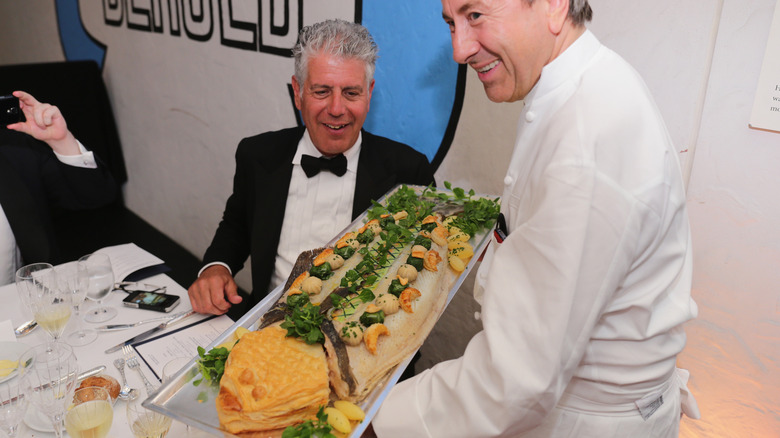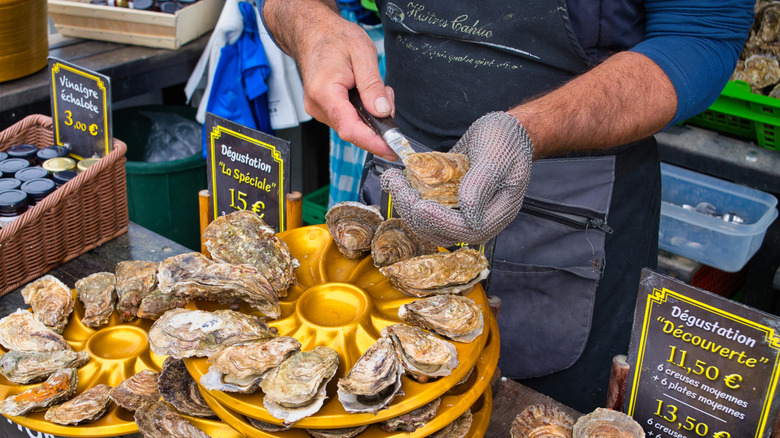Anthony Bourdain's Love For Food Started With This Divisive Seafood
Anthony Bourdain's love for seafood can be traced back to a single, transformative moment: his first taste of an oyster. This scientific phenomenon and nostalgic experience, often called the Proust Phenomenon, which he recounts in his bestselling memoir "Kitchen Confidential," was a defining one. He writes, "It tasted of seafood ... of brine and flesh ... and somehow ... of the future. Everything was different now. Everything." It not only opened his palate to the world of seafood, but also ignited a lifelong passion for culinary exploration. That single oyster, slurped fresh from the shell on his family's annual trip to France, was more than just food — it was an existential awakening.
Bourdain's father was of French descent, so the family spent multiple summers in the seaside town of Arcachon in southwest France. Bourdain was just a child when he first encountered the briny delicacy. A local fisherman offered him a freshly harvested oyster and, unlike his brother and parents, who recoiled at the idea of eating something so raw and unfamiliar, Bourdain embraced the challenge, gulping it whole without hesitation. It was that fearlessness, that instant understanding that food can transport you, can move you, that he claims made him want to be a cook. The oyster represented the thrill of the unknown, the power of culinary discovery, and the notion that food was an experience, not just sustenance. Bourdain's immersion in coastal cuisine, its food culture, and appreciation for the simple pleasures in life would influence him throughout the rest of his culinary career.
From oysters to octopus to bouillabaisse
That first oyster set Bourdain on a path that led him to embrace seafood in all its forms. As he pursued a career in the culinary world, seafood became a cornerstone of his cooking. In fact, his very first kitchen job was washing dishes at a grungy seafood shack in Provincetown on Cape Cod. Bourdain was drawn to the delicate nature of fish, the artistry of preparing shellfish, and the rich, often underappreciated rituals surrounding coastal cuisine. From visiting the iconic Tsukiji fish market in Tokyo and seeking out tinned seafood in Catalonia to eating Gulf oysters in landlocked Austin, Texas, Bourdain immersed himself in the world of ocean fare. He developed a deep appreciation for the labor that went into fishing, the skill required to prepare seafood correctly, and the cultural significance of dishes like bouillabaisse, Coquilles Saint-Jacques, and escargots.
His television series, "No Reservations" and "Parts Unknown," often featured seafood-heavy episodes that showcased his love for everything from a crab dumpling soup in Vietnam to one of his favorite restaurants in the world, Swan Oyster Depot. Even after his passing, Bourdain's influence on the way people perceive unusual seafood endures. He encouraged diners to respect and appreciate the work that goes into harvesting seafood sustainably, to seek out lesser-known dishes, and to never shy away from the "weird" or unknown. Anthony Bourdain's legacy lives on, inspiring food lovers everywhere to embrace new experiences, one bite at a time.

